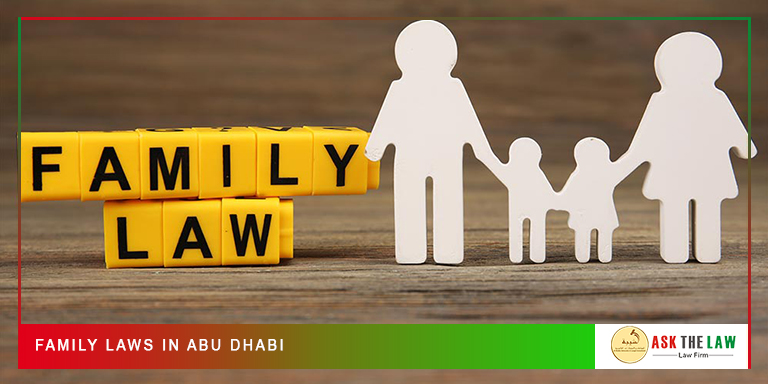
Family Laws in Abu Dhabi
Emirate of Abu Dhabi has become a progressive state within the United Arab Emirates. Embracing diversity in the population, Emirate of Abu Dhabi, being capital of United Arab Emirates, has made significant developments in its family laws, especially the matters related to marriage and divorce. However, the reforms are developed for non-Muslims, as Muslims will follow Sharia law, which is based on Islamic laws. There is no change for Muslims therefore. Let’s look at the latest developments in Abu Dhabi civil family laws for non-Muslim expatriates living in Abu Dhabi.
Formation of Abu Dhabi Civil Family Laws
The family laws for non-Muslims developed in Abu Dhabi are to ensure justice and transparency in family matters. The civil laws are aligned with the international laws that offer a different approach to the private matters. In addition, the family laws in Abu Dhabi have been improved to streamline non-Muslim legal processes. These family laws in Abu Dhabi also promote diversity in the cultures and religions in the region. Reforming the Abu Dhabi family laws has catered to non-Muslims in a good manner since they are in significant numbers in the UAE. For an understanding relevance with any specific situation, it’s better to consult our family lawyers in ABU DHABI.
Civil Marriages in Abu Dhabi
Civil marriages in Abu Dhabi are a relatively new concept for Muslims, but it is applied to non-Muslim expatriates and residents. Civil marriage does not have any requirement for religion, but it formalizes the marriage for non-Muslim couples. There are certain factors for the provision of civil marriage:
- Eligibility Criteria
The man and woman should be 18 years or older to ensure their legal age of getting married. They must provide official documents to verify their identity and confirm their age. However, they must also sign a Declaration Form confirming their marital status as single and having mutual consent for the marriage arrangements.
- Relationships
Non-Muslims are prohibited from getting married to their first-degree relatives.
- Changes in the Marriage Contract
The couple can make changes to their marriage contract before signing it, and they can review their rights and responsibilities toward each other.
- Responsibility of the Judge
The civil judge monitors the process of registering the marriage and ensures that the couple fulfils all conditions for getting married in the UAE. With the easy marriage process, Abu Dhabi has boosted confidence in non-Muslims that they can formalize marriages with transparency.
Divorce and Alimony in Abu Dhabi
The family laws in Abu Dhabi have streamlined the divorce process by emphasizing justice and mutual consent in marital decisions. The process minimizes the rig so that the results for both parties are achieved. A divorce can be filed under the following circumstances in the UAE:
- Unilateral Divorce
Either of the spouses can apply for divorce. They do not have to blame the other spouse for harming them unless they are not a victim of domestic violence. However, they can file the divorce papers, and no questions will be asked of the complainant. This way, the couple will not have to endure emotional and financial stress.
- Mutual Consent
The couple can also decide mutually to part ways. If they have concluded that they have thought of getting separated, they can apply for divorce mutually. Upon filing for divorce, they have to make financial settlements and arrangements for child custody to avoid prolonged legal cases related to custody and alimony.
- Financial Support
The law allows the wife to receive alimony from her former husband. Alimony provides financial security after divorce. Factors that decide alimony include the spouse’s financial status, the wife’s ability to remarry, and the duration of the marriage. However, if either of the spouses does not agree with the alimony arrangement, they can appeal in court. The finances are divided equally between the spouses so the divorce can be transitioned smoothly.
- Custody of the Child
The Abu Dhabi family laws focus on the welfare of the child. Therefore, it has offered joint custody to the parents. But there are exceptions to it. Under joint custody, both parents share equal responsibility for their child after divorce. The idea of joint custody proposes the minimum impact of divorce on the children. However, the custody shall be decided in the child’s best interests. If one of the spouses is not doing well financially or has behavioural issues, they cannot be given custody of the child. Abu Dhabi’s child custody laws ensure the child is raised in a safe environment.
Inheritance and Wills for Non-Muslims
The civil family laws govern the inheritance of property for non-Muslims. It streamlines equality and asset distribution amongst the family members. The non-Muslims can decide the distribution of their property on their own. They do not have to follow any laws of asset distribution like the Muslims have to follow.
However, the wills shall be written to ensure that asset distribution is done with justice and fairness. If there is no will of the deceased, their property will be distributed equally amongst the family members. The family courts in Abu Dhabi will resolve such disputes.
Are Abu Dhabi Family Laws Helpful?
With the integration of digital platforms, Abu Dhabi’s civil family matters can be filed online. The applications have a user-friendly interface that ensures convenience and efficiency in resolving family matters. However, the lawyers in Abu Dhabi have also focused on alternative dispute resolution (ADR) methods to ensure that family disputes are resolved amicably without prolonging the matter through litigation. Specific family courts in Abu Dhabi resolve marriage and divorce cases.
Implications on the Non-Muslims in Abu Dhabi
The new family laws have positively impacted the lives of non-Muslims as they do not have any emotional stress or financial issues with post-divorce events. Moreover, the family laws demonstrate inclusivity and a modern approach by legal consultants by resolving cases through ADR methods.
Do I Need a Family Lawyer in Abu Dhabi?
If you are planning to part ways and your child is also involved, then you will need an amicable settlement with the help of a family lawyer. They will guide you through divorce and arrange custody and financial settlements with your spouse.
Abu Dhabi’s family laws have also shown the importance of sharing family responsibilities by adopting joint custody of the child after divorce. Moreover, the processes have been made easy with the digital integration of the platforms. The transformative impact of Abu Dhabi family laws on non-Muslim residents has boosted their confidence in living in the UAE freely.


